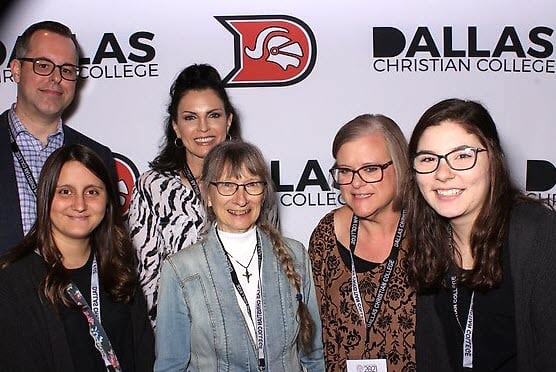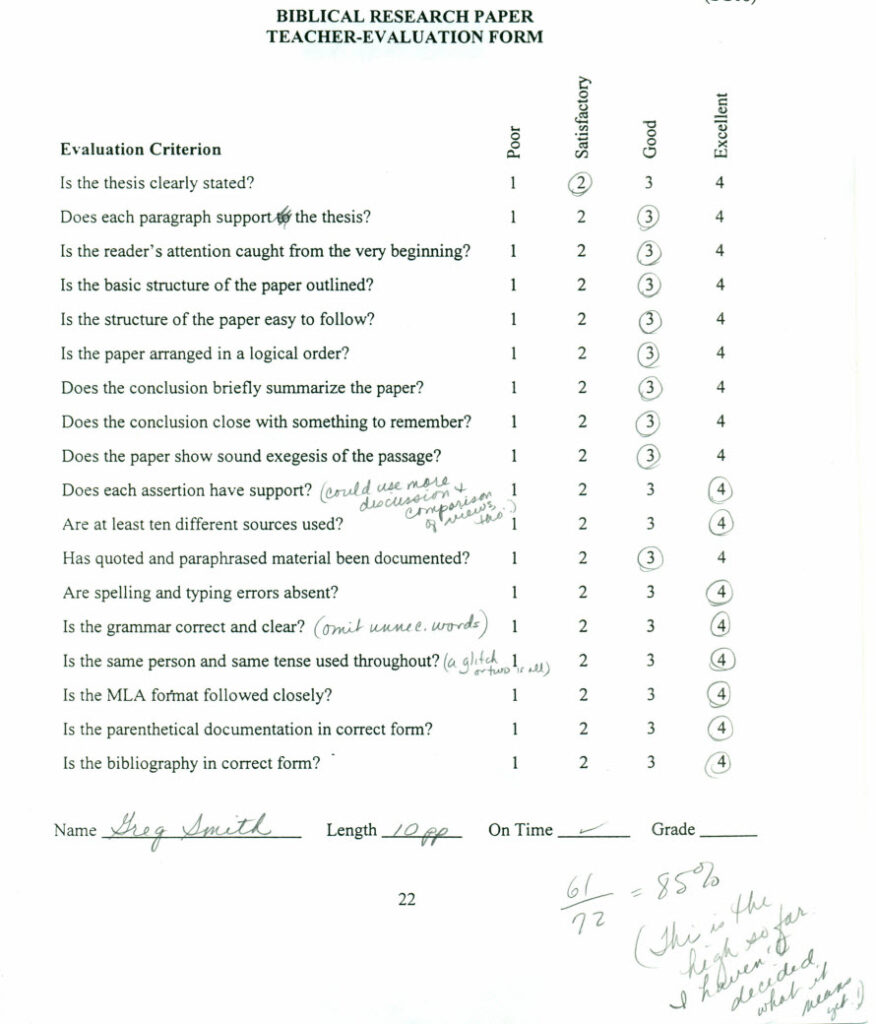Last night I attended a Dallas Christian College homecoming event that included a moving presentation recognizing Dr. Cara Snyder’s impact.
For the last fifty years, she has served as English professor. Dr. Snyder taught nearly every student who has graduated from the school from the 1970s through the 2010s, and the vast majority of students in the institution’s seventy-one year history.
Based on the formal presentation, personal conversations with alums, and my own experience it is clear that Dr. Snyder has been much more than a subject matter expert. She has invested deeply in her students as people, encouraging them to live into the people they are called to be while also ably guiding them to improve their research and writing skills.

English Composition
I was an overconfident 17 year old freshman when I first encountered Dr. Snyder. I assumed the academic side of college would be easy, and that the required core courses would be even easier.
The first few class sessions of English Composition went as expected. I was ready to fast forward to the end of the semester, collect an easy A, and move on to focus on courses in my major.
My plan worked until I received my first grade. I don’t recall the assignment or the letter grade I received, but remember clearly it wasn’t an A.
I was mildly irritated, but persisted with my approach and assumptions.
Everything seemed fine until she handed back the first major writing assignment. When I saw a letter grade wasn’t an A, I felt overwhelmed by a variety of negative emotions.
Later, I read and re-read the comments she’d written throughout the paper and a long note she’d added at the end. The longer I sat with her critique the more I realized it was valid.
I returned to class humbled, and ready to listen, learn and grow.
Biblical Research
Three fall semesters later, I returned to Dr. Snyder’s classroom as a senior for a class called Biblical Research Seminar.
Unlike my early experience in a lecture hall, this course was comprised of fewer than ten students. It was my opportunity to put together skills I’d learned as a ministry major with the research and writing I’d learned from Dr. Snyder.
I didn’t assume anything. I worked hard, asked lots of questions, and was surprised to receive a B on my final paper and an A for the course.
Interestingly, what I remember most about this course is something that was not among the course’s learning outcomes. Dr. Snyder recognized I was struggling with life outside of college. Her intervention was timely, caring, and helpful in ways far beyond what I recognized at the time.
So What?
There is no formula that will accurately measure the impact of Dr. Snyder’s ministry on the lives of her students. Instead, there are countless stories of pastors, missionaries, educators, musicians, non-profit professionals, and business people who are better people today because of their experiences with Dr. Cara Snyder.
The academic lessons Dr. Snyder taught me have served me well. I went on to earn a Master of Divinity, a Master of Business Administration, and a Doctor of Ministry. And, because I approached each with increased academic intensity I earned cumulative GPAs of 4.0, 4.0, and 3.89.
The lessons she modeled on what it means to be a professor who cares as much or more about students as people than about their ability to achieve course learning outcomes are ones I sought to embody in the nearly ten years I spent as an adjunct professor.
Fun fact: I still have a copy of the final paper I submitted for Biblical Research. Dr. Snyder wrote 40 comments across the paper’s 16 pages (not counting text she marked through, typos she noted, or other basic editorial marks she added), three paragraphs at the end of the paper summarizing it’s strengths and weaknesses, and provided a scored rubric assessing my performance across 18 criteria.
